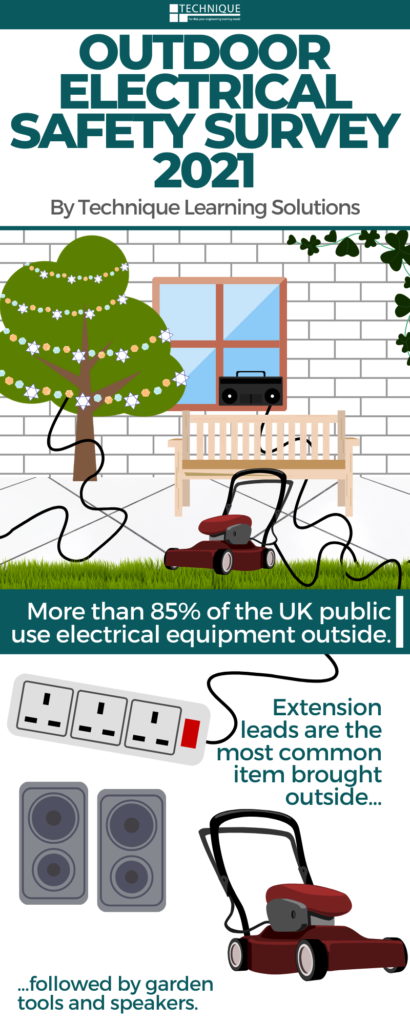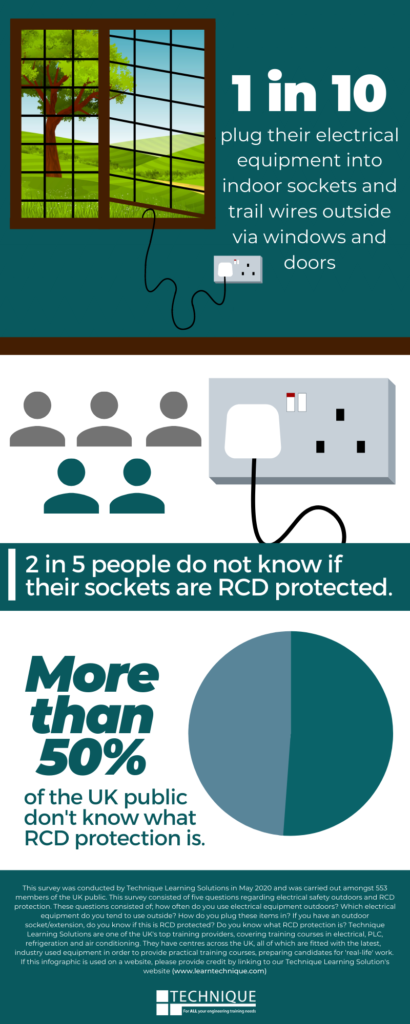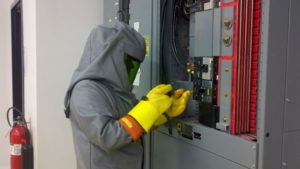

During the warmer months, gardens often become additional living spaces for many households. This means more electrical equipment is being brought and used outdoors such as lawnmowers, electric trimmers, lighting and entertainment equipment, such as speakers.
According to a recent survey conducted by training providers Technique Learning Solutions, over 80% of the UK public use electrical equipment outside, with this comes an increased risk of hazards which can be caused for a range of reasons.
Mark Crook, managing director at Technique Learning Solutions, said: “Whilst those within the electrical industry will be aware of the risks associated with bringing electrical equipment outdoors, however, the general public may not realise just how risky it can be. It’s important those within the electrical industry to inform and advise on these risks and how to prevent them.”
The most common hazard is electric shock – many people have experienced electrical shock or accidents whilst using electrical appliances outdoors. A common cause of electric shock is cutting live wires when using lawnmowers and other gardening equipment.
Additional hazards include fires, damaged appliances, and even death in extreme cases. RCD protection provides additional protection against electric shock when coming into contact with live parts – they can be fitted onto fuse boards to protect multiple sockets, or onto individual sockets.
The RCD must be rated 30mA or less to provide protection. The survey revealed that 56.6% of survey respondents do not know what RCD protection is, and two in five people have no idea if their sockets are RCD protected. Despite 54% of people claiming to know what RCD protection is, less than half know that their sockets are RCD protected.
Mark commented: “RCD protection is extremely important and it’s quite shocking that there are many people who either haven’t or don’t know if their sockets are RCD protected.”
There are safer ways of using electrical items outside, one being to use an outdoor socket, and if an extension lead is required, an outdoor one plugged into an outdoor socket is the safest option. However, just one-third of people currently use outdoor sockets and/or extension leads.
Full Survey Results
Q1. How often do you use electrical equipment outdoors?
Always – 28.5% Rarely – 16.2%
Sometimes – 42.4% Never – 12.9%
Q2. Which of the below electrical items do you tend to use outside?
Most – Extension Leads
Garden Tools
Speakers
Chargers
Lights
Heaters
Special mentions – Irons, TVs, power tools, pool/hot tub filters and heaters, pond pumps.
Q3. How do you plug these items in?
A normal extension lead plugged into a socket inside – 27.7%
An outdoor extension lead plugged into a socket inside – 24.8%
Plug directly into a socket inside and trail wires out via doors and windows – 11.3%
A normal extension lead plugged into an outdoor socket – 6.3%
An outdoor extension lead plugged into an outdoor socket – 13%
Plug directly into an outdoor socket – 16.9%
Q4. Are your sockets RCD protected?
Yes – 37.8%
No – 17%
No idea – 42.5%
Q5. Do you know what RCD protection is?
Yes – 48.8%
No – 51.2%




